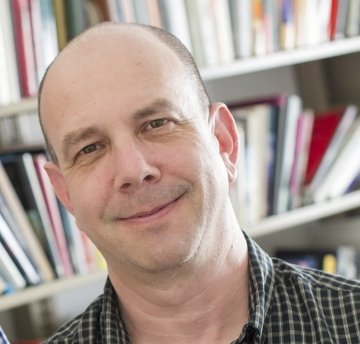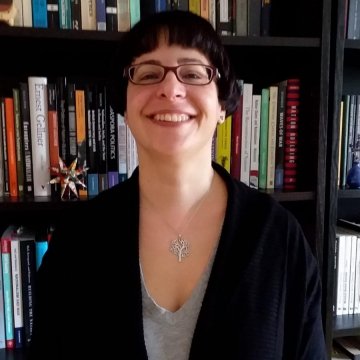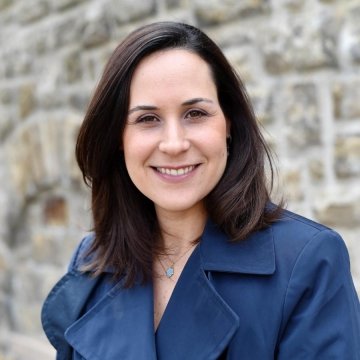St. Lawrence in the News - May 3, 2021
This regular roundup features a selection of recent mentions of St. Lawrence University and its students, faculty, and staff in regional, national, and international media outlets.

Recent St. Lawrence graduate Hamidou (Hammi) Sylla ’21 was interviewed by North Country Public Radio on Friday, April 30. In the interview, Hammi shares how his student experience inspired his Commencement speech.
“When we come to these private, secluded, environments to create a community, it’s always important to remember that we are coming from the larger society, thus we bring in all of the issues or problems we have from that society within this new bubble that we are creating as a community,” he said.
Several Laurentians were honored during Commencement including Hammi, who was St. Lawrence’s 2021 Joan Donovan Speech Contest winner. His speech centered on themes of overcoming obstacles and persevering together to facilitate much-needed change.
Assistant Professor of History Howard Eissenstat was quoted by the Washington Post on Friday, April 26. In a tweet about Turkish denial of the Armenian genocide, Eissenstat wrote, “The Armenian Genocide is too close to Turkey’s moment of conception and too intimately linked to the foundation of the Republic. Accepting it would require a fundamental rethinking of the narrative of creation at Turkish nationalism’s core.”

On Thursday, April 25, following President Biden’s formal recognition of the Armenian genocide, Eissenstat provided expert insight on the push for recognition to the independent news outlet, Haaretz, and was quoted by South Caucasus and Central Asia news outlet, Eurasianet. “I give the Turkish outrage cycle after Biden's declaration three days, tops. Then it will be back to the same haggard, harried relationship we have all grown accustomed to,” said Eissenstat.
On Wednesday, April 24, Eissenstat weighed in on the implications for Turkish-U.S. relations following Biden’s statement in an article by Middle East Eye. “Turkish-U.S. relations are not particularly strong. I don't think that this improves them. I don't think that this fundamentally undermines them,” said Eissenstat. “In the end, Turkey and the U.S. are going to find places to cooperate, and they're going to have lots of areas where they're working at odds with each other. This is a presidential statement. It gives solace to the descendants of victims, particularly those in the United States, but outside of that, it doesn't have any legal standing."
Eissenstat's research focuses on nationalism and Islam in the 19th-century Ottoman Empire as well as the history of the Turkish Republic. His recent work has focused increasingly on contemporary Turkish domestic and foreign policy, especially on issues of rule-of-law, minority rights, and the reshaping of political culture under the Justice and Development Party (AKP). In addition to traditional academic work, Eissenstat served for over a decade as a Turkey Country Specialist for Amnesty International-USA. He has lectured at the Foreign Service Institute of the U.S. Department of State, the U.S. military, and the Canadian Foreign Service Institute, as well as given testimony to the Canadian Senate and offered briefings to Congressional Committees.

Assistant Professor of Sociology Yesim Bayar penned an opinion piece published by independent media organization openDemocracy on Thursday, April 8. In the piece, Bayar, whose research interests focus on the process of social and political change, shares how nationalism has become a political focal point following Turkey’s Council of State’s declaration that the recitation of the “student oath” will no longer be a part of the daily routine for Turkish students.
“While we are reflecting on how Turkey could be pulled out of authoritarian rule, we may want to seriously consider the pervasiveness of nationalism and the limits it places on the possibility of genuine social and political change,” wrote Bayar.
Bayar’s work spans a variety of interrelated issues including nationalism, ethnic and religious minorities, citizenship, constitution-writing, and language policies. Her work has appeared in several journals and her book The Formation of the Turkish Nation-State, 1920-1938, was published in 2014.

Associate Professor of Government Ronnie Olesker wrote an opinion piece published by Real Clear World on Thursday, April 8. In the piece, Olesker shared her perspective on the legacy Prime Minister of Israel Benjamin Netanyahu wants to leave behind.
“Netanyahu wants his legacy to focus on peace agreements with the United Arab Emirates, Bahrain, and Morocco, or having the entire population vaccinated against COVID-19. He will already be remembered as the longest-serving Israeli prime minister, and its most corrupt. But in the end, Netanyahu’s legacy is also an unlikely one. He is the leader who legitimized the Arab vote in Israel,” wrote Olesker.
Olesker’s work focuses on international relations and security studies. Courses she regularly teaches at St. Lawrence include Introduction to International Relations, Israeli-Palestinian Conflict, and Middle East Politics.
Submit media mentions for a potential upcoming edition of ‘St. Lawrence in the News.’



